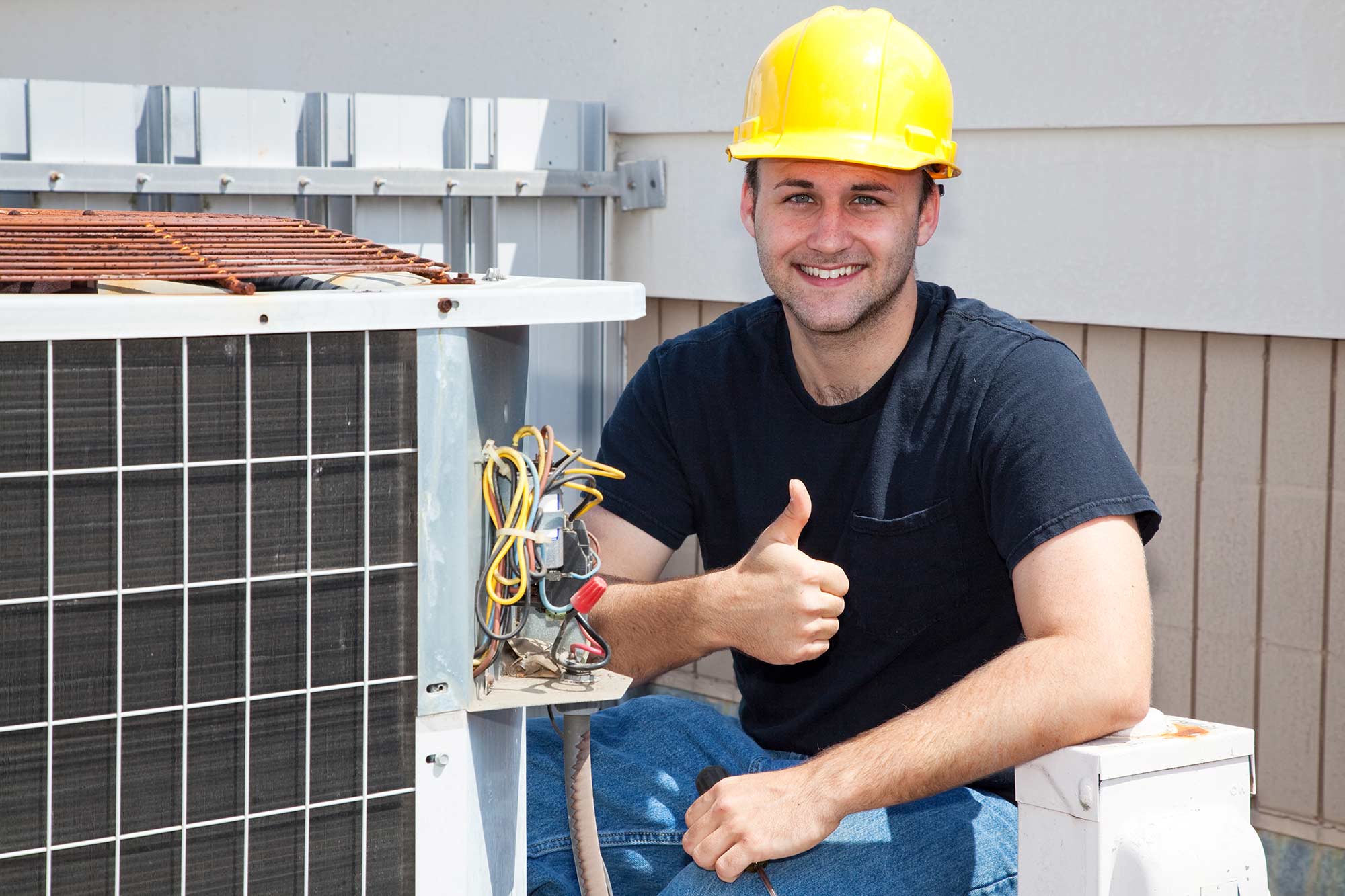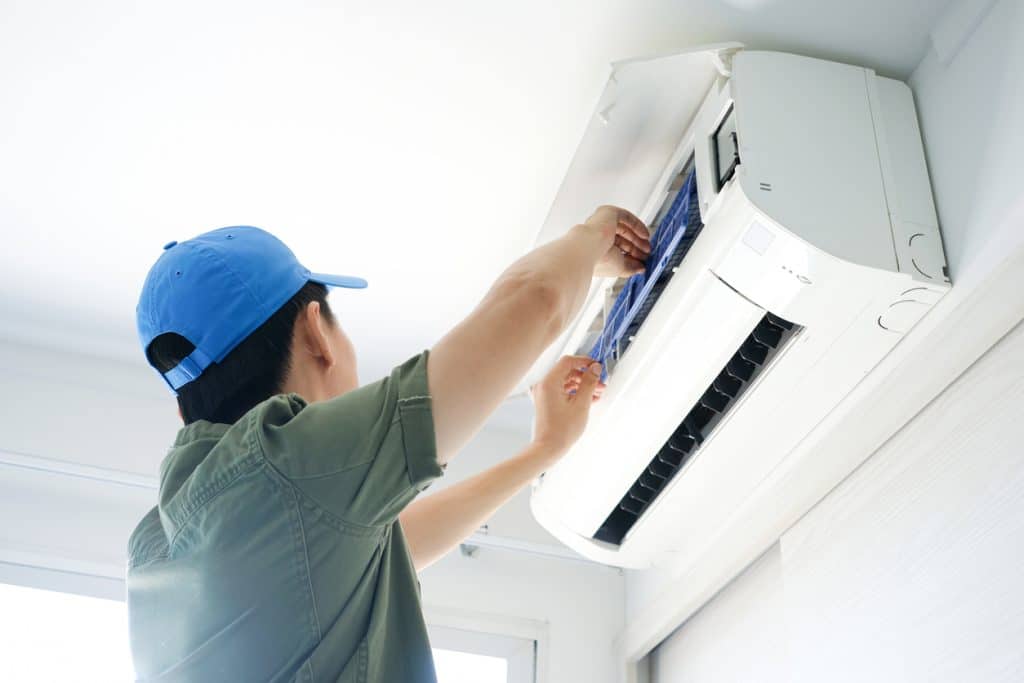How an HVAC company helps improve long-term comfort
All Concerning Cooling And Heating: Identifying Common Issues and Effective AC Repair Service Techniques
Heating and cooling systems are important for keeping interior comfort. Recognizing their parts and functionality is vital for identifying typical issues. Property owners frequently deal with problems such as inadequate cooling, weird smells, or rising energy expenses. These indications can suggest underlying issues that may require interest. Discovering do it yourself troubleshooting methods can be advantageous, but knowing when to seek specialist assistance is equally vital. What actions can be taken to assure lasting efficiency?
Recognizing Your HVAC System: Components and Functionality
An a/c system, typically taken into consideration the foundation of indoor environment control, is composed of a number of vital elements that function together to regulate temperature level and air quality. The main components include the home heating system, air flow system, and a/c system. The home heating system, usually a furnace or boiler, creates warmth during cooler months, while the a/c unit cools interior rooms during the summertime.

Common Cooling And Heating Issues Home Owners Encounter
Homeowners usually face a number of typical cooling and heating problems, including irregular temperature circulation throughout their space. Additionally, unusual noises throughout procedure can indicate underlying issues that call for focus. Addressing these concerns without delay is vital for preserving perfect system efficiency.
Irregular Temperature Distribution
Many families experience the aggravating concern of irregular temperature level distribution, where certain rooms really feel annoyingly warm while others continue to be too cold. This issue usually occurs from a selection of elements, including inadequate insulation, blocked vents, or an incorrectly sized a/c system. When air ducts are not sufficiently secured or when furniture blocks air flow, some areas might get inadequate air conditioning. Furthermore, thermostat positioning can significantly influence temperature law; a thermostat situated in a sunlit area may misrepresent the general temperature level of your home. Normal maintenance, including cleaning filters and making certain ductwork is clear, can help relieve these inconsistencies. Homeowners may additionally take into consideration zoning systems to far better control temperatures throughout different locations of the home, advertising a much more comfy living atmosphere.
Uncommon Noises Throughout Operation
When an a/c system operates, unusual noises can indicate underlying concerns that call for attention. Property owners might come across a series of sounds, such as grinding, squealing, or hissing. Grinding sounds typically indicate damaged bearings or parts, while squeaking can recommend loosened belts or components needing lubrication. Hissing might show a refrigerant leakage, which can jeopardize the system's performance. Additionally, banging audios could indicate loose ductwork or a concern with the blower follower. Each of these noises functions as a warning, prompting property owners to investigate better. Overlooking these indicators can cause more substantial issues and costly fixings. Routine maintenance and punctual interest to unusual sounds can enhance system long life and efficiency, guaranteeing a comfy living environment.
Indicators That Indicate Your A/c Demands Repair
Just how can one tell if their cooling unit wants repair work? Numerous signs might indicate underlying issues requiring expert interest. Initially, if the air conditioner stops working to cool the space effectively, it might suggest a refrigerant leakage or compressor malfunction. In addition, a boost in power bills without corresponding usage adjustments could signal ineffectiveness in the system. Homeowners should also look out to uncommon scents emanating from the system, which might show mold and mildew development or electric issues. If the AC frequently cycles on and off, it could be an indication of a faulty thermostat or other mechanical issues. The presence of water pooling around the unit can indicate a stopped up drainpipe line. Acknowledging these indications early can save money and time, making sure that the a/c system operates efficiently and efficiently.
DIY Troubleshooting Techniques for HVAC Issues
When encountering cooling and heating concerns, homeowners can employ several do it yourself troubleshooting techniques to recognize the trouble. Key techniques consist of inspecting thermostat setups, evaluating air filters, and examining drain problems. These steps can aid identify common malfunctions before looking for expert assistance.
Examining Thermostat Setups
What steps should homeowners take to guarantee their thermostat setups are proper? Initially, they must validate the thermostat is established to the wanted temperature level and setting, whether home heating or cooling. Looking for a clear display screen and verifying the thermostat is not set to "hold" or "holiday" mode is crucial. Home owners need to also validate useful link that the thermostat is level and set up in a location cost-free from drafts, direct sunshine, or other temperature level influences. Additionally, rectifying the thermostat can help supply accurate analyses. If the thermostat runs on batteries, changing them may resolve any kind of problems. By methodically examining these factors, house owners can frequently determine and correct thermostat-related problems, promoting excellent a/c system efficiency.
Inspecting Air Filters
Air filters play a vital duty in maintaining excellent heating and cooling efficiency. They catch dust, allergens, and other fragments, ensuring clean air flow. With time, filters can become blocked, minimizing air movement and effectiveness. To check air filters, people need to initially situate the filter, often found in the return air duct or near the furnace. Once situated, they need to evaluate the filter's condition-- if it appears filthy or tarnished, it likely requirements replacement. Many filters require altering every 1-3 months, relying on use and ecological variables. Normal inspection and prompt replacement of air filters not just boost air top quality yet additionally lengthen the life expectancy of a/c systems, avoiding potential malfunctions and pricey fixings.
Examining Drain Issues
Exactly how can house owners efficiently determine and resolve drainage concerns within their heating and cooling systems? First, they need to check the condensate drain line for obstructions or blockages, which can result in water build-up. Property owners may make use of a wet/dry vacuum cleaner to clear any kind of particles obstructing the line. Next off, checking the drainpipe frying pan for rust or leakages is essential, as a harmed pan can cause water to overflow. Normal cleaning of the drainpipe line with a blend of vinegar and water assists avoid future obstructions. Furthermore, guaranteeing correct slope of the drainpipe line advertises effective water flow. If these do it yourself techniques do not resolve the problem, getting in touch with a specialist heating and cooling service technician may be necessary to prevent potential water damages and system failure.
When to Call an Expert for AC Repairs

While some AC problems can be taken care of through DIY approaches, there are situations where calling an expert comes to be essential. House owners should seek skilled aid when they experience consistent troubles, such as inadequate cooling, odd sounds, or uncommon odors emanating from the system. These signs and symptoms might show much deeper problems that call for specialized knowledge and devices to diagnose and repair correctly.

Preventative Upkeep Tips for HVAC Long Life
Normal preventative maintenance can significantly improve the longevity of a/c systems. House owners ought to arrange yearly inspections by qualified specialists to assess system efficiency and identify prospective issues. Frequently altering or cleansing air filters is essential, as this warranties appropriate air movement and reduces pressure on the system. On top of that, checking and sealing ductwork stops energy loss and enhances total efficiency.
It is additionally a good idea to maintain the outside device clear of particles and greenery, enabling peak air flow and heat exchange. Home owners need to evaluate the condensate drainpipe for obstructions to avoid water damages and mold and mildew development. Maintaining ideal thermostat settings and using programmable options can improve energy performance. Recording maintenance activities aids track solution history and can help in recognizing recurring problems. By complying with these preventative actions, individuals can make the most of the efficiency and life-span of their HVAC systems
Frequently Asked Inquiries
Exactly how Often Should I Change My Heating And Cooling System Filters?
Heating and cooling system filters must typically be changed each to three months, relying on use, filter kind, and environmental factors. Normal substitute aids maintain performance and air top quality, ensuring peak system efficiency throughout the year.
What Dimension HVAC System Do I Required for My Home?
To identify the proper cooling and heating system dimension for a home, one need to take into consideration square footage, insulation top quality, and neighborhood environment. Consulting a specialist can assist guarantee optimal effectiveness and convenience for the particular living area.
Are There Eco-Friendly HVAC Options Available?
Yes, environment-friendly HVAC options are available, including energy-efficient heatpump, solar-powered systems, and geothermal home heating. These alternatives decrease power intake and ecological effect, advertising sustainability while maintaining effective environment control for household and business areas.
How Can I Improve My cooling and heating System's Energy Performance?
To improve cooling and heating energy effectiveness, one can routinely preserve the system, seal air leaks, set up programmable thermostats, use energy-efficient filters, and guarantee adequate insulation throughout the home to lower power consumption and improve performance.

What Is the Average Life Expectancy of a Cooling And Heating System?
The average life expectancy of a HVAC system commonly varies from 15 click reference to 25 years, depending on elements such as maintenance, use, and the top quality of installment. Regular maintenance can considerably prolong its operational long life.
Verdict
In summary, a comprehensive understanding of HVAC systems equips property owners to determine usual concerns and address small troubles successfully. Identifying indicators of malfunction, employing DIY troubleshooting techniques, and prioritizing regular upkeep can improve system efficiency and effectiveness. When faced with intricate fixings, employing specialist aid is important to guarantee safety and security and longevity. By fostering recognition and aggressive treatment, people can enjoy visit this page a comfortable indoor atmosphere while reducing unanticipated prices connected with a/c failings.